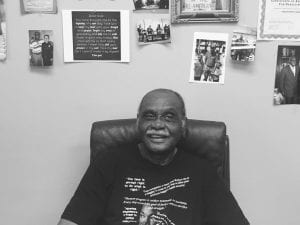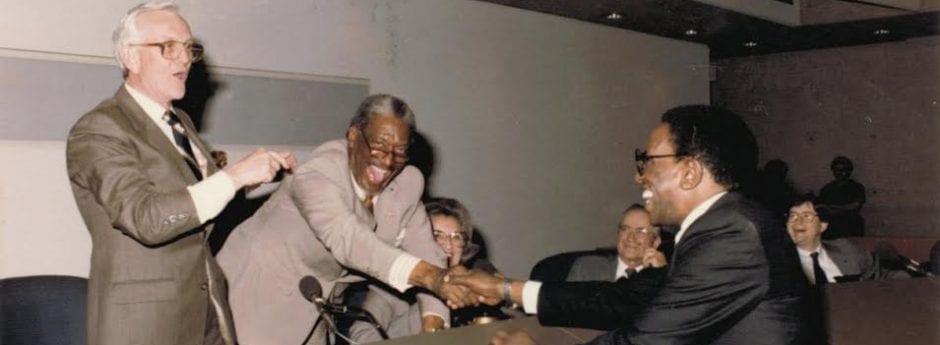
Reverend Peter Johnson is a prominent civil rights leader whose history of activism in Dallas spans over four decades. Born in 1945, Johnson grew up in Plaquemine, Louisiana, where his father led the local branch of the NAACP. Johnson attributes his early activism to his family’s influence and his involvement with the Plymouth Rock Baptist Church, a site of protests and bombings during Louisiana’s civil rights movement. He first encountered pan-Africanism during his studies at Southern University, a historically black university in Baton Rouge. As a young man, Johnson also served as the president of Plaquemine’s NAACP youth chapter and participated in the local sit-in movement.
In 1963, Johnson began working for the Congress of Racial Equality (CORE), as the civil rights organization led a student campaign in Louisiana. Johnson later participated in a variety of other civil rights protests across the South, including campaigns in Birmingham, Selma, and the March on Washington. In addition to his activism as a student, Johnson went on to work for the Southern Christian Leadership Conference (SCLC) in Atlanta, where he joined civil rights leaders like Andrew Young, Bernard Lafayette, and Dr. Martin Luther King, Jr. Johnson’s work also brought him into contact with Stokely Carmichael and other young leaders who built anti-apartheid connections with South African youth.
In 1969, Johnson moved to Dallas on a temporary assignment for the SCLC, but chose to stay and work with the city’s low-income residents. Opening a SCLC office in Dallas, Johnson partnered with the Fair Park Block Partnership to resist the unfair removal of Fair Park’s residents as the City of Dallas attempted to acquire the neighborhood surrounding the fairgrounds. Johnson also drew attention for his campaigns against structural inequality and urban hunger, as demonstrated by his work with the SCLC’s ‘Operation Breadbasket’ in Dallas. Connecting the city’s anti-apartheid protests to civil rights activism, Johnson describes these movements as an interconnected battle for human dignity. Johnson remains an active champion for human rights in Dallas, as he continues to promote civil rights law, youth empowerment, and a more just community.
